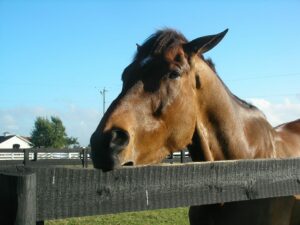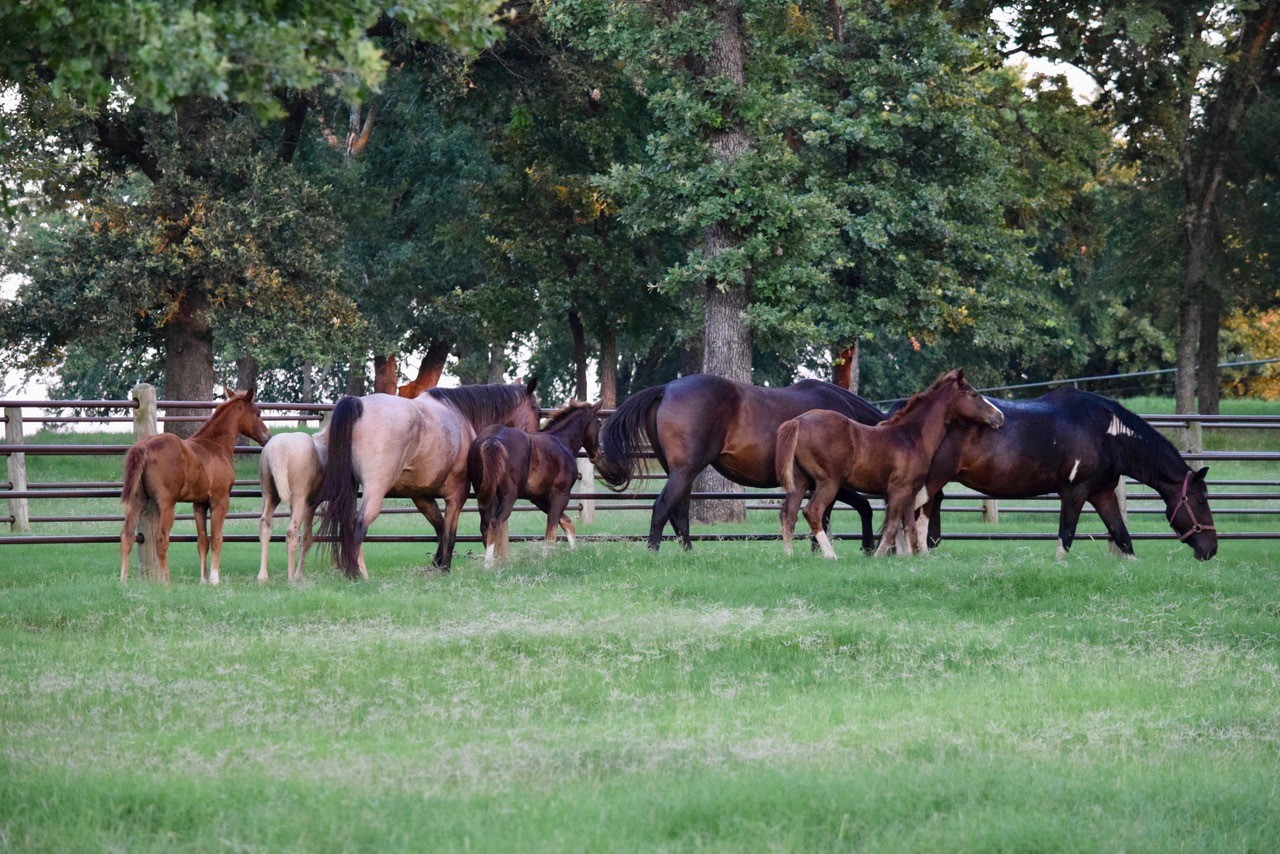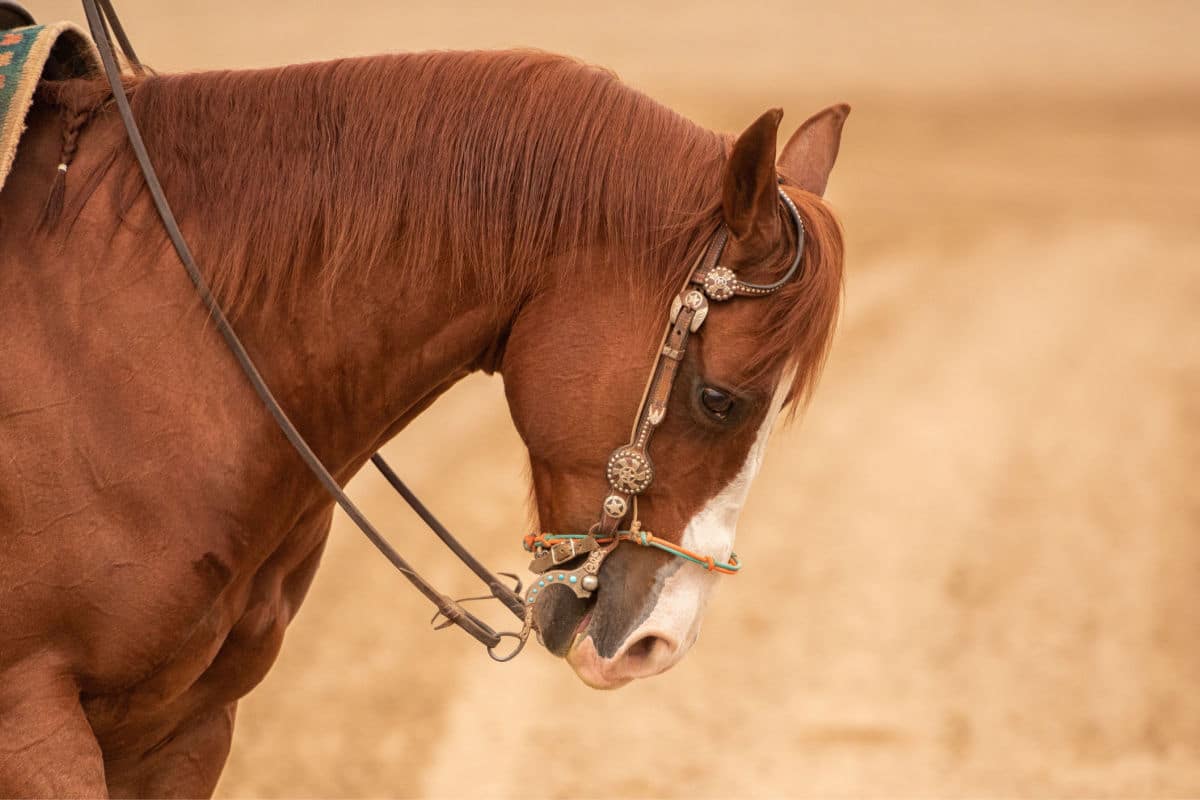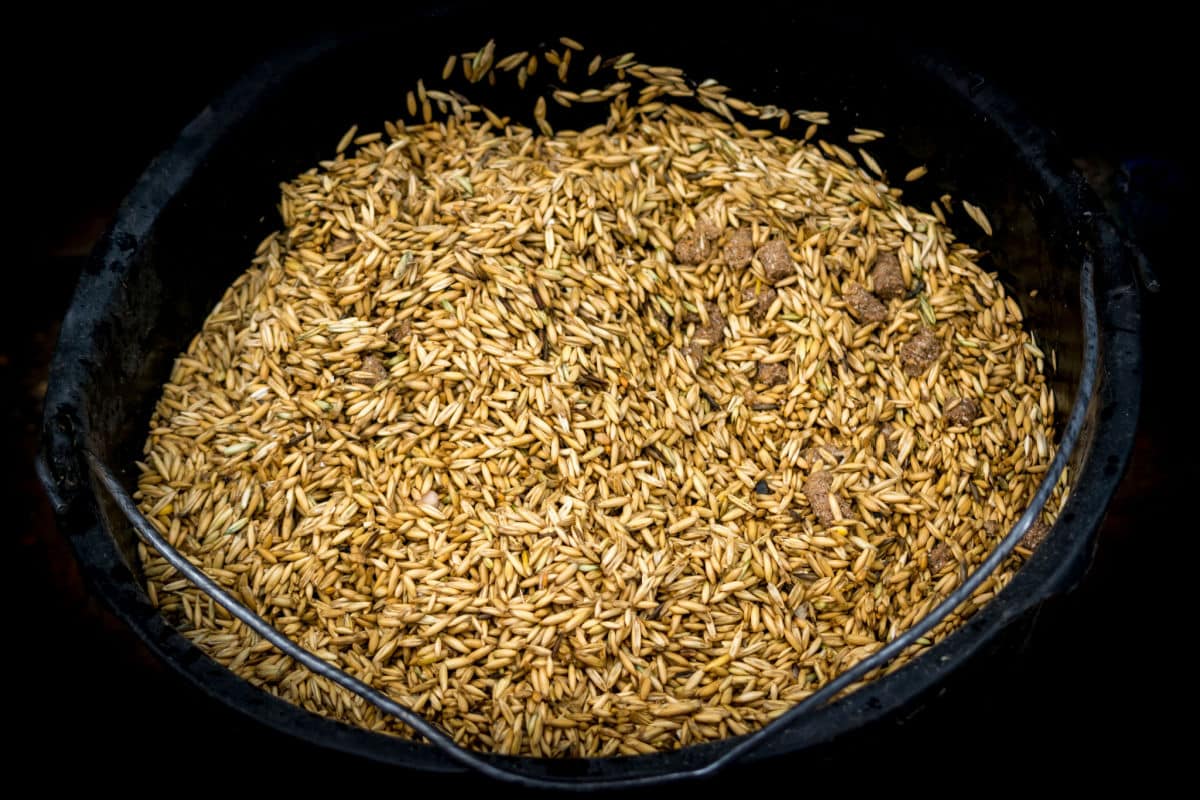
Cribbing is a nasty habit for horses. When they lock those upper teeth down on a fence or feed bucket and suck in air, it’s hard on the horse (their teeth, musculature, and back), it damages their surroundings, and it’s simply unpleasant to observe.
It was long thought that cribbing was simply a learned behavior in horses. Foals learned it from their dams, horses picked it up from their stall mates or herd mates. They started out of sheer boredom. And there was little we could do to actually stop it; we could only reduce it.
However, it’s becoming increasingly understood among veterinary circles that cribbing may actually be a symptom of gastric ulcers in many horses.
While
gastric ulcers are certainly not the exclusive cause of cribbing, it is important to consider that the behavior may be induced or increased by digestive distress rather than just assuming it’s a learned habit to be managed or ignored.
Why Cribbing May Signal Gastric Ulcers in Horses
Gastric ulceration refers to lesions in the lining of a horse’s stomach, which primarily occur in the upper third of the stomach. They can range in severity from a single reddened, inflamed area to open and bleeding sores throughout. Both are uncomfortable for the horse and negatively impact the horse’s digestive and overall wellness.
While the specific cause of gastric ulcers remains unclear, they are certainly irritated by the digestive acids that are continually produced in the equine stomach. The correlation between cribbing and gastric ulcers is thought to exist, then, because the act temporarily relieves the pain caused by acids hitting the wounds. When the horse locks down and sucks in air, the stomach inflates, raising the ulcerated top portion of the stomach away from the irritating acids.
Have a Horse That Cribs? Talk to Your Vet.
With
gastric ulcers plaguing a majority of performance horses – over 90% of racehorses and up to 80% of performance horses in all disciplines – it’s important to consider that cribbing may be related to digested discomfort. The reason your OTTB cribs is almost certainly not because he learned it from a neighbor after all.
If your horse is a cribber, talk to your vet. If gastric ulcers may be present, your veterinarian will use a 3-meter endoscope to take a look at your horse’s stomach and can visually identify any ulceration.
Gastric ulcers rarely resolve on their own, even with improved feeding and management. They require intervention by your veterinarian and
treatment to heal before you take steps to avoid future occurrences. In many horses,
treating the ulcers and
improving feed management can reduce and sometimes eliminate the cribbing behavior.
But Not All Horses Who Crib Have Ulcers
Not all horses who crib have gastric ulcers (and even if they do, treating them may not eliminate the behavior entirely). For some, it may still be genetic or a learned habit. But the research clearly shows that this is the exception. While it’s important to identify and treat potential ulceration if that is the case, you may also end up ruling out ulceration. In that scenario, it’s important to work with your veterinarian to manage the behavior without necessarily restricting it or causing your horse undue stress.
Of course, if
gastric ulcers or other upper GI tract distress are the underlying cause of cribbing in your horses, there is some good news. Gastric distress, and the conditions that give rise to this situation, is entirely preventable. Keep in mind, too, that even if ulcers were the original cause, your horse has made cribbing a habit since. Achieving gastric health will reduce cribbing, but may not stop it completely.
Cribbing is a learned behavior = maybe…but it’s unlikely. While in some horses cribbing has no clear causes, for others it is a symptom of gastric ulceration that needs to be treated by a vet and managed through proper feeding.
REFERENCES
There are many studies available that prove the link between cribbing and gastric pain. Here are just a few for quick reference:
Photo used by permission, Creative Commons License. Flick Photo: jrubinic.
 Cribbing is a nasty habit for horses. When they lock those upper teeth down on a fence or feed bucket and suck in air, it’s hard on the horse (their teeth, musculature, and back), it damages their surroundings, and it’s simply unpleasant to observe.
It was long thought that cribbing was simply a learned behavior in horses. Foals learned it from their dams, horses picked it up from their stall mates or herd mates. They started out of sheer boredom. And there was little we could do to actually stop it; we could only reduce it.
However, it’s becoming increasingly understood among veterinary circles that cribbing may actually be a symptom of gastric ulcers in many horses.
While gastric ulcers are certainly not the exclusive cause of cribbing, it is important to consider that the behavior may be induced or increased by digestive distress rather than just assuming it’s a learned habit to be managed or ignored.
Cribbing is a nasty habit for horses. When they lock those upper teeth down on a fence or feed bucket and suck in air, it’s hard on the horse (their teeth, musculature, and back), it damages their surroundings, and it’s simply unpleasant to observe.
It was long thought that cribbing was simply a learned behavior in horses. Foals learned it from their dams, horses picked it up from their stall mates or herd mates. They started out of sheer boredom. And there was little we could do to actually stop it; we could only reduce it.
However, it’s becoming increasingly understood among veterinary circles that cribbing may actually be a symptom of gastric ulcers in many horses.
While gastric ulcers are certainly not the exclusive cause of cribbing, it is important to consider that the behavior may be induced or increased by digestive distress rather than just assuming it’s a learned habit to be managed or ignored.



